Earth
Sign up for our newsletter
We summarize the week's scientific breakthroughs every Thursday.
-
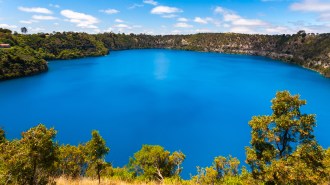 Climate
ClimateClimate change could turn some blue lakes to green or brown
As temperatures rise, more than 1 in 10 of the world’s blue lakes could change color, reflecting holistic shifts in lake ecosystems.
-
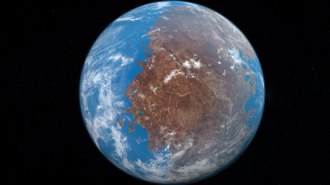 Earth
Earth50 years ago, scientists dug into Pangaea’s past lives
In 1972, scientists wondered whether Pangaea was Earth’s only supercontinent. Fifty years later, we know it wasn’t the first and it won’t be the last.
-
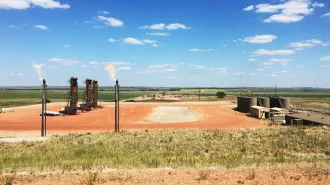 Climate
ClimateGas flares are leaking five times as much methane than previously thought
The flares burn off methane at 91 percent efficiency. Achieving 98 percent efficiency would be like taking nearly 3 million cars off the road.
-
 Science & Society
Science & SocietyBig questions inspire the scientists on this year’s SN 10 list
These scientists to watch study climate change, alien worlds, human evolution, the coronavirus and more.
-
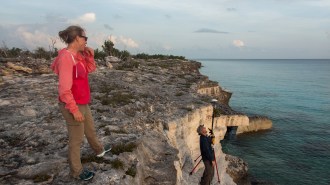 Earth
EarthJacky Austermann looks to the solid earth for clues to sea level rise
Jacky Austermann’s work could help inform practical climate change solutions for at-risk coastal cities.
By Aina Abell -
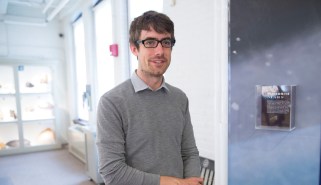 Planetary Science
Planetary ScienceRobin Wordsworth re-creates the atmosphere of ancient Mars
Robin Wordsworth studies the climates of Mars and other alien worlds to find out whether they could support life.
By Nikk Ogasa -
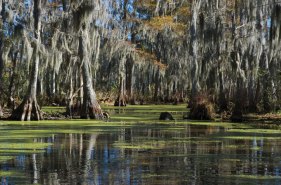 Ecosystems
Ecosystems‘Fen, Bog & Swamp’ reminds readers why peatlands matter
In her latest book, author Annie Proulx chronicles people’s long history with peatlands and examines the ecological value of these overlooked places.
By Anna Gibbs -
 Ecosystems
EcosystemsA Caribbean island gets everyone involved in protecting beloved species
Scientists on Saba are introducing island residents to conservation of Caribbean orchids, red-billed tropicbirds and urchins.
By Anna Gibbs -
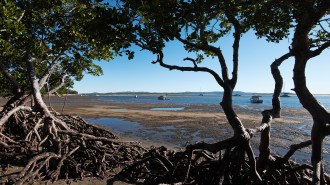 Environment
EnvironmentMangrove forests expand and contract with a lunar cycle
The carbon-sequestering trees grow in a roughly 18-year cycle according to tides influenced by the moon’s orbit, a study in Australia finds.
-
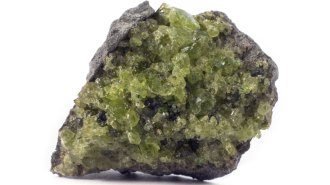 Earth
EarthHere’s how olivine may trigger deep earthquakes
Olivine’s transformation into another mineral can destabilize rocks and set off quakes more than 300 kilometers down, experiments suggest.
By Nikk Ogasa -
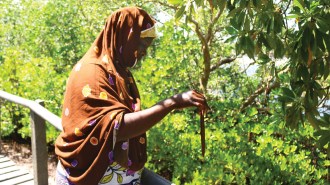 Climate
ClimateHow Kenyans help themselves and the planet by saving mangrove trees
Communities in Kenya took action to restore their coastal mangrove forests, reaping economic and environmental benefits. Others are following suit.
-
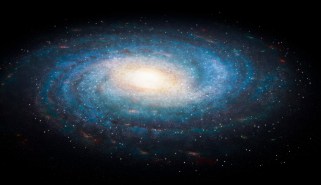 Planetary Science
Planetary SciencePassing through the Milky Way’s arms may have helped form Earth’s solid ground
Barrages of comets stirred up by the early solar system’s journey around the center of the galaxy could explain the timing of ancient rock formation.